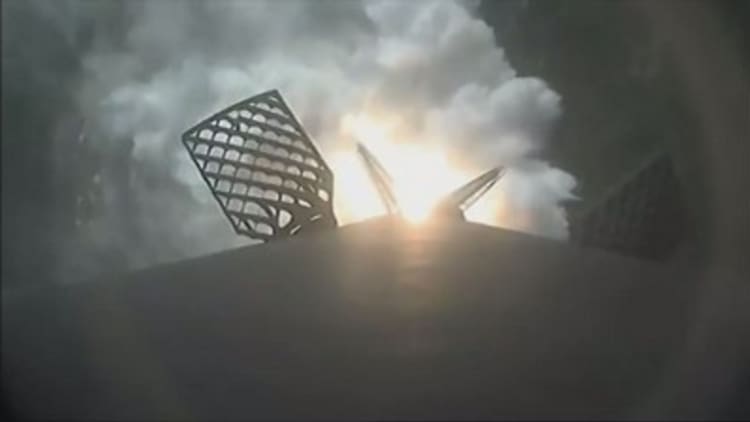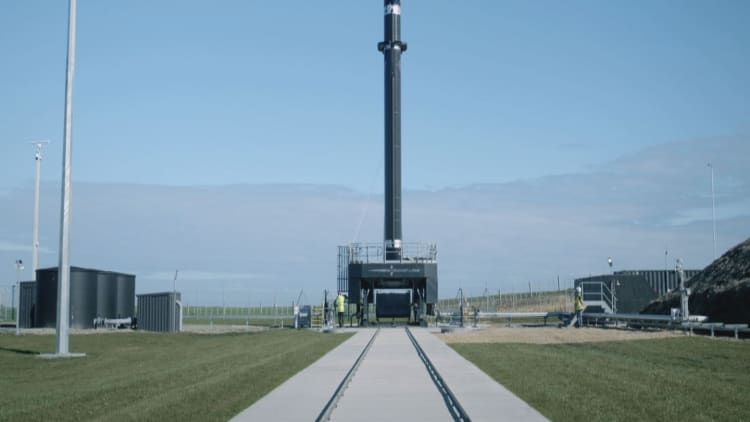
SpaceX CEO Elon Musk shared video of the company's rocket booster splashing down just off the Florida coast on Wednesday after missing its intended target.
The Falcon 9 rocket's lower stage was supposed to land at LZ-1, the company's concrete landing pad at Cape Canaveral Air Force Station.
Musk said in a tweet on Wednesday that the booster's "grid fin hydraulic pump stalled," sending it off course. Despite the water landing, Musk tweeted that the rocket "appears to be undamaged" and "is transmitting data." He added that the company "may use it for an internal SpaceX mission."
Video from on board the SpaceX Falcon 9 rocket booster shows when it splashed down and fell over.
Brigadier General Douglas Schiess of the U.S. Air Force said in a statement that "there are no public safety or health risks posed and the recovery of the booster is underway."
The company succeeded in the main goal of its mission, however, as the company's cargo capsule reached orbit on its way to the International Space Station. Known as CRS-16, this was SpaceX's 16th mission of launching supplies and experiments to the space station for NASA. It was also SpaceX's 20th mission of the year, a record for the company.
SpaceX does not always attempt to recover the Falcon 9 booster, sometimes intentionally discarding the booster during high intensity launches. The last time SpaceX had a failure during a Falcon 9 booster landing was June 2016, when the rocket ran out of fuel on the way down. Musk's company has landed more than two dozen consecutive Falcon 9 rockets since then. In February, one of the three Falcon Heavy rocket boosters smashed into the ocean when it missed the target.
Additionally, the SpaceX incident is largely standard protocol for rocket companies. SpaceX is the only company which lands orbital-class rocket boosters, as others discard the bottom part of the rocket after a launch. Reusing rockets is a key to SpaceX's long term goal of making humanity "a multiplanetary species," as Musk says.
SpaceX made history on Monday when it became the first company to fly the same orbital-class rocket three times. SpaceX launched and landed the rocket booster three times in the course of about seven months.
WATCH: This small-rocket unicorn wants to be the FedEx of space



